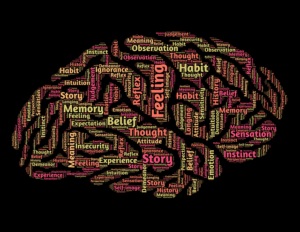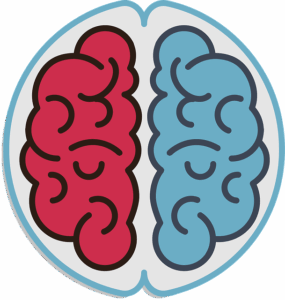Alzheimer’s and Brain Awareness Month is observed in June as an opportunity to bring awareness and discuss Alzheimer’s disease and other dementias. On this Father’s Day, this awareness brings me back to when my dad was diagnosed with Alzheimer’s and everything I learned through him.
Each experience with Alzheimer’s and other issues that impact brain health is personal: for those experiencing the impact directly and for those who are close to someone experiencing changes to their brain. Today, I want to share some history, information, resources, and support to help you if you are involved today or know people who are.
Here is a little history for you. In 1910, Alzheimer’s disease was named after Alois Alzheimer by his senior colleague, psychiatrist Emil Kraepelin, who used the term ‘Alzheimer’s disease’ in his book “Psychiatrie.” In 1980, the Alzheimer’s Association, the leading organization in Alzheimer’s care and research, was established.
6 Facts About Alzheimer’s
- Around the world. An estimated 47 million people around the world are living with Alzheimer’s and other dementias, and if a change doesn’t come by 2030, this number will grow to 76 million.
- There are more than 7 million people age 65 and older in the United States living with Alzheimer’s. Two-thirds of Americans have at least one major potential risk factor for dementia.
- Each second counts. A person develops Alzheimer’s disease in the United States every 65 seconds.
- Caregivers. In America, more than 16 million people take care of family or friends with Alzheimer’s or dementia, and that, too, without pay.
- A leading disease. In the U.S., Alzheimer’s is the sixth leading cause of death, and 6.2 million of those living with Alzheimer’s disease are over 65.
- One out of three deaths. Alzheimer’s or other dementia kills one in three seniors and deaths due to this disease are more than prostate cancer and breast cancer combined.

Image by John Hain from Pixabay
Brain Diseases
Other diseases and disorders can have a negative impact on brain health. Broadly speaking, these diseases can be categorized into structural, functional, and inflammatory conditions. Examples include neurodegenerative diseases like Alzheimer’s and Parkinson’s, stroke, traumatic brain injury, and infectious diseases like meningitis and encephalitis. These can affect cognitive function, motor skills, mood, and other aspects of brain health.
Here’s a more detailed breakdown:
1. Structural Brain Damage:
- Stroke: Interrupts blood flow to the brain, causing tissue damage and potentially leading to cognitive and physical impairments.
- Traumatic Brain Injury (TBI): Injuries to the brain caused by impact, such as from falls, car accidents, or sports injuries, can lead to a range of short-term and long-term cognitive and physical problems.
- Brain Tumors: Tumors, whether benign or malignant, can press on brain tissue and disrupt normal function.
- Brain Aneurysm: A weak spot in a blood vessel wall can rupture, causing bleeding in the brain and potentially stroke-like symptoms.
2. Functional Brain Disorders:
- Neurodegenerative Diseases: These diseases cause progressive loss of brain cells and function, leading to cognitive decline, motor difficulties, and personality changes. Examples include Alzheimer’s, Parkinson’s, ALS, and Huntington’s disease.
- Dementias: A broad category of neurodegenerative disorders that affect memory, thinking, and reasoning skills. Alzheimer’s, vascular dementia, and frontotemporal dementia are examples.
- Mental Disorders: Conditions like schizophrenia, bipolar disorder, and depression can also impact brain health and cognitive function.
- Epilepsy and Seizures: These disorders involve abnormal electrical activity in the brain, leading to seizures and potentially impacting cognitive function.
3. Inflammatory and Infectious Diseases:
- Encephalitis: Inflammation of the brain, often caused by a viral infection, leads to a range of symptoms including fever, headache, and altered mental state.
- Meningitis: Inflammation of the membranes surrounding the brain and spinal cord, often caused by bacterial or viral infections, leading to fever, headache, and stiff neck.
- Other Infectious Diseases: Certain infections like syphilis, Lyme disease, and HIV can also affect brain function.
4. Other Brain Disorders:
- Headaches: While not directly causing brain damage, severe or chronic headaches can significantly impact brain health and overall well-being.
- Sleep Disorders: Conditions like insomnia and sleep apnea can disrupt brain function and cognitive performance.
- Autoimmune Disorders: Conditions like multiple sclerosis and Guillain-Barré syndrome can affect the brain and spinal cord by attacking the nervous system.
Risk Factors
Modifiable Risk Factors:
- Lifestyle:.Lack of physical activity, unhealthy diet, smoking, excessive alcohol use, and inadequate sleep can contribute to cognitive decline and increase the risk of Alzheimer’s.
- Health Conditions: Unmanaged chronic conditions like high blood pressure, diabetes, high cholesterol, and obesity can damage blood vessels and reduce oxygen and nutrient flow to the brain, increasing the risk of Alzheimer’s and other vascular forms of dementia.
- Hearing Loss: Untreated hearing loss has been linked to an increased risk of dementia, and using hearing aids may help reduce the risk.
- Social Isolation: Loneliness and lack of social engagement may contribute to cognitive decline and increase the risk of Alzheimer’s.
- Air Pollution: Exposure to air pollution has been associated with a higher risk of developing Alzheimer’s.
- Untreated Depression: Untreated depression can be a risk factor for dementia, and addressing it can help reduce the risk.
Non-Modifiable Risk Factors:
- Age: As individuals age, their risk of developing Alzheimer’s generally increases.
- Family History: Having a family history of Alzheimer’s, especially with immediate family members like parents or siblings, increases the risk.
- Genes: Certain genes, like the APOE gene, can predispose individuals to a higher risk of Alzheimer’s.
- Gender: Women are more likely to develop Alzheimer’s than men, although the reasons for this are not fully understood.
- Racial and Ethnic Differences: Some racial and ethnic groups, like African Americans, Hispanics, and American Indians/Alaska Natives, may have a higher prevalence of Alzheimer’s risk factors.

Image by Venita Oberholster from Pixabay
Maintaining Brain Health:
- Regular Exercise: Physical activity is crucial for maintaining brain health and reducing the risk of cognitive decline.
- Healthy Diet: Eating a balanced diet rich in fruits, vegetables, and healthy fats can support brain health.
- Social Engagement: Maintaining social connections and engaging in mentally stimulating activities can help protect brain health.
- Managing Chronic Conditions: Controlling high blood pressure, diabetes, and other chronic conditions can help reduce the risk of Alzheimer’s.
- Addressing Hearing Loss: Promptly addressing hearing loss with hearing aids can help improve cognitive function and reduce the risk of dementia.
Ten Signs and Symptoms
The Alzheimer’s Association has compiled 10 signs and symptoms for us.
- Memory loss that disrupts daily life
- Challenges in planning or solving problems
- Difficulty completing familiar tasks
- Confusion with time or place
- Trouble understanding visual images and spatial relationships
- New problems with words in speaking or writing
- Misplacing things and losing the ability to retrace steps
- Decreased or poor judgment
- Withdrawal from work or social activities
- Changes in mood and personality
Resources
The Alzheimer’s Association has a variety of resources for us. If you notice one or more signs in yourself or another person, it can be difficult to know what to do. It’s natural to feel uncertain or nervous about discussing these changes with others.
Voicing worries about your health might make them seem more “real.” Or, you may fear upsetting someone by sharing observations about changes in his or her abilities or behavior. It’s helpful to have a doctor evaluate health concerns and help you determine the best course of action.
Music and Art Therapy are potential great resources. It can help improve the mood, encourage movement, and stimulate memory per the Alzheimer’s Association. Other resources include: How is Alzheimer’s Disease Diagnosed? Communicating with Your Health Care Team (PDF) 10 Warning Signs Worksheet (PDF) 10 Warning Signs of Alzheimer’s (free online course) 10 Steps to Approach Memory Concerns in Others (PDF) 10 Steps to Approach Memory Concerns in Yourself (PDF) and Why Get Checked?
Awareness
Alzheimer’s and brain awareness in contingency planning take on importance because of the role mental capacity plays in decision-making. Mental capacity directly impacts an individual’s ability to make legal decisions.
It refers to the cognitive ability to understand, retain, process, and communicate information necessary for making informed choices. If an individual lacks sufficient mental capacity, they may not be able to enter into contracts, make medical decisions, or execute wills, among other legal actions.
I’m an advocate for making plans (you know that 😉) and have experienced relief 1st hand because my dad had taken action before his Alzheimer’s diagnosis. His wishes and decisions were formalized before he lost his mental capacity. No matter what you formalize, you can make changes along the way – even with your legal documents, as long as your cognitive capacity is sound.
If you’re considering making plans, count me in as someone to guide you. Reach out via Email or Book Time with Lynn to talk about you. For additional information about my work, check out @ The Living Planner or @ The Living Planner.
If you’re up for planning your life’s administrative side, consider my book as a resource. The Living Planner: What to Prepare Now While You Are Living © Check it out HERE.
Quote for the week: “A healthy mind takes care of business” – me ❣️
Happy Father’s Day! Lynn
#PlanfortheUnplanned #Can’tPredict

